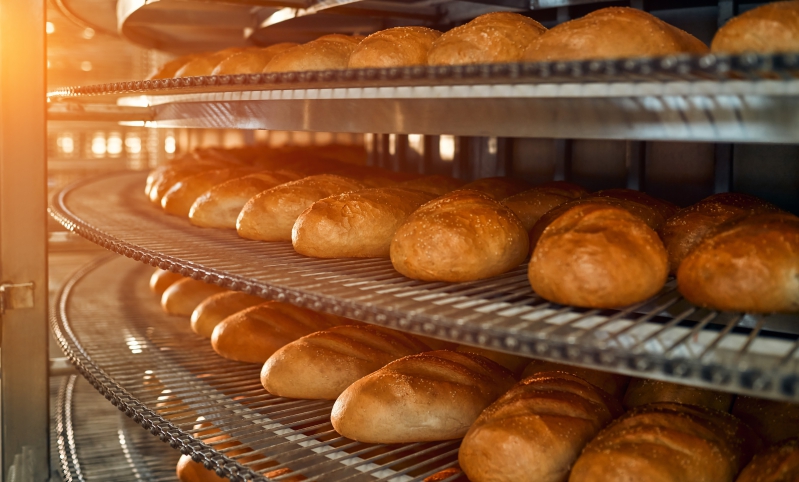
Pending federal legislation would improve food information for consumers with gluten sensitivity.
Individuals with celiac disease or non-celiac gluten sensitivity (NCGS) often lack access to full information about gluten in food. But if passed, proposed federal legislation would give these consumers the reliable product information they need.
Currently pending in the U.S. Congress, the Food Labeling Modernization Act of 2021 would strengthen food labeling requirements related to nutrients, the disclosure of food allergens, and more. These proposed amendments to federal law would help people with celiac disease and NCGS navigate food purchasing and gain access to a wider variety of food products beyond those specifically labeled as gluten-free.
Celiac disease is an autoimmune disorder that can currently only be treated by strictly avoiding the ingestion of gluten. Gluten proteins are found in foods containing wheat, barley, and rye, as well as in some ingredients derived from those grains. If left untreated, celiac disease can lead to gastrointestinal distress as well as more generalized symptoms, such as fatigue, joint pain, and neurological issues.
It has been estimated that 0.7 percent or more of the U.S. population has celiac disease, equating to about 3 million Americans—although many remain undiagnosed. Consumers with NCGS likewise must adhere to a strict gluten-free diet to control that health condition. Far from a trendy weight-loss fad, a gluten-free diet is essential to the health of consumers with celiac disease and NCGS.
U.S. labeling laws have already come a long way in ensuring that consumers can rely on gluten-free labels that appear on packaged food items. In 2014, a U.S. Food and Drug Administration (FDA) rule mandated that these types of products contain less than 20 parts per million of gluten. There are also rules in place about the particular types of ingredients that can be used in gluten-free labeled foods, as well as rules about the labeling of fermented and hydrolyzed foods as such.
In 2017, an FDA study found that the vast majority of the gluten-free-labeled food products sampled did, in fact, contain less than 20 ppm of gluten as required by the rule. Although concerns about non-compliance with the standard remain, the evidence indicates that many gluten-free-labeled products do conform to the FDA rule. In addition, the presence of wheat as an allergen must be declared on food labels, even for those items not specifically labeled as gluten-free.
Despite this progress, the current statutory and regulatory framework may often leave the celiac or NCGS consumer able to purchase safely only that subset of food products specifically labeled as gluten-free. Currently, when a packaged food is not explicitly labeled as gluten-free, a consumer can review a label for the presence of wheat, since wheat must be listed as an allergen. But the gluten-containing grains barley and rye are not currently required to be listed as allergens. A gluten-free consumer, therefore, cannot always tell whether these grains are present in a food—such as when natural flavors, malt syrup, or yeast extract are listed on a label without further details.
The proposed legislative update to federal food labeling law is designed to address this issue by requiring gluten-containing grains to be disclosed on food labels of packaged items. If enacted, gluten-free consumers could more easily determine if they can consume a packaged food item safely, even when it does not contain a gluten-free label.
Gluten-free-labeled foods often cost more than non-labeled alternates. If gluten-free consumers could accurately tell whether products contain gluten, they could safely purchase a wider variety of foods, often at lower prices, by identifying previously hidden sources of gluten on labels.
The proposed legislation would also require online food retailers with over a certain amount of sales to disclose all required allergen and gluten-containing grain information at the online point of sale. This provision would address the growing importance of online food shopping; the number of U.S. consumers who ordered groceries during the pandemic increased dramatically over those who had done so in the past.
Mandating that the same information about gluten-containing grains required by the proposed legislation appear online would allow celiac and NCGS consumers to purchase safe food items online as easily as in stores, and it would also benefit consumers who suffer from a variety of food allergies.
These provisions are only part of the proposed law’s measures to promote consumer health and safety and to allow for informed consumer purchasing decisions. Consumer Reports has endorsed the Food Labeling Modernization Act of 2021, as have the Center for Science in the Public Interest, the Environmental Working Group, the National Celiac Association, the Celiac Disease Foundation, Beyond Celiac, and the Gluten Intolerance Group.
To ensure the health of celiac and NCGS consumers, and to lessen the restrictions and expense of these diseases, Congress should pass the Food Labeling Modernization Act of 2021.




